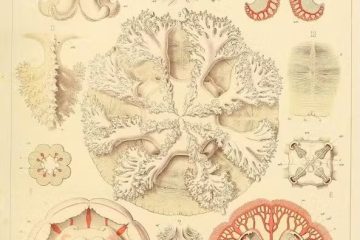Kindness as a Political Virtue that Could Save Us from Ruin
By Dion Forster

For some years I have been thinking about the importance of recognizing and cultivating political virtues for the sake of a better future. By that I mean that I have been thinking about the kind of values that individuals and societies should cultivate in order to be able to realize a kind of polis (a politics, if you will) for the good life.
Think with me for a moment—what would you name as the characteristics of a truly good society? Perhaps it would be one that is free of violence or where everyone has equal access to what they need to survive and flourish? Perhaps such a society would be free from the various -isms that cause division, pain, and dehumanization (sexism, racism, classism)? Perhaps, it would be a peaceful, free, and responsible society and consider not only the needs of people (anthropocentrism), but would also seek justice and flourishing for non-human creation?
In political thought, we recognize that good societies are built upon the cultivation of patterns of thought that lead to both policies and actions that have the good of all persons and non-human creation at their core.
Now, I have good reason for thinking about the importance of political virtue, particularly the virtue of kindness. I’m going to explain at the end of this blog post, but first let me tell you how I got here. I was born in Zimbabwe but grew up in South Africa because of some tragic events in my early life. Both countries have suffered horrendous political abuses of the most “unkind” type. Personally, I was cared for by strangers, taken in and raised by kind people. I have known both political un-kindness and personal kindness.
Historically, Zimbabweans and South Africans have suffered un-kindness, indeed inhumanity, of the worst kind. The people of these nations were politically, socially, and physically disfigured by the divisive and subjugating intentions of colonialism, the violence of which was perfected in South African Apartheid. Colonialism functioned by accentuating differences between people and creating hierarchies of meaning and value. The bodies, thought systems, languages, cultures, and politics of the colonizers were differentiated from those of the indigenous people, whose lands they unjustly claimed and occupied.
Then the colonizers presented themselves as civilized, sophisticated, religiously exceptional, and even of a “different kind” from the persons of Southern Africa that they hunted, tortured, raped, and enslaved. Phumla Gobodo-Madikizela rightly argues that treating another human being with such violence—with such blatant disregard for their humanity so that they become only a “thing,” a commodity that you use for your advancement, satisfaction, and pleasure—dehumanizes not only the victim but also the violator.
Racists dehumanize themselves when they fail to recognize that they share a common humanity with all other humans. Chauvinists, xenophobes, religious fundamentalists, and extreme nationalists (to name just a few examples) do the same: by denying the shared humanity of others, they devalue the richness of their own humanity. No human person can survive, let alone flourish, without fostering meaningful social relationships. The richness of humanity is best displayed in embracing and celebrating our diversity, not in denying it.
As I write this, South Africans are celebrating Freedom Day. Each year on the 27th of April South Africans commemorate the democratic elections of 1994 in which all South Africans were able to vote for the first time. These freedoms were hard won. During some of the darkest periods of South Africa’s apartheid history, I was a young priest, serving black Christian congregations. We spent a great deal of time dreaming of a New South Africa. What would it be like when freedom came? How would we live differently from the oppressors? What kind of society would we want for our children, and theirs, in which everyone’s humanity was recognized, affirmed, and cherished?
A central theme in much of our political conscientization (developing and building a consciousness of important political ideas and commitments) was the concept of human dignity. Following the lead of Steve Bantu Biko’s Black Consciousness and Paulo Freire’s Pedagogy of the Oppressed, we conceptualized the building of a society that was shaped by the values of freedom and equality for all. The focus on Black Consciousness sought to unsettle the stronghold of white supremacism, and African intellectuals and artists sought to revive the language, art, philosophy, and culture of our people that the British, Dutch, French, and Portuguese had devalued, vilified, and erased.
In recent years, this impetus has gained prominence in politics, the academy, and the arts under the catch all phrase of “decolonization.” The work of persons such as Walter Mignolo, Gayatri Chakravorty Spivak, Frantz Fanon, Ngūgī wa Thiong’o (among others) urge us to recognize and repair the psychological and social harm that has been imprinted on generations of Africans. The work of these decolonial thinkers helps us to “unthink” the West, acknowledging that we, Africans, are not a construction of the West, and that Western politics, economics, and cultures have not been good for the planet or for the majority world. As such, they cannot be uncritically accepted or adopted. The instinct to power, to subjugate, to consume, to dominate has led to untold suffering.
Yet sadly, as we have seen in Zimbabwe and South Africa, decolonization is a messy and complicated business. It is very difficult to un-learn the habits of colonialism and live differently from the colonizer. We have experienced what Frantz Fanon calls “retrogressive” or “countercolonialism.” Our liberators have, in many instances, become our abusers. Those who led us to liberation, who are now the political and economic elites, have themselves fallen prey to xenophobia, ethnic conflict, political and economic corruption, and gross human rights abuses.
I would contend that one of the reasons for this is that they, indeed we, have not adequately recognized the political importance of the virtue of kindness. The root of the English word kindness is “kin.” Your “kin” are your family, your community. Kindness is a virtue that is based upon the recognition that we are kin to one another.
This notion is central to understanding human dignity: we accord common dignity to all human persons because we all share the same nature. We are of a foundational family of sorts, in spite of surface differences. For those who adhere to the Abrahamic religions (Judaism, Christianity, Islam), this notion is based on the belief that all human persons are created in the image of God, their creator (Genesis 1:26-27).
The ethicist Stanley Hauerwas contends that “to be kind is to learn how to be a creature with other creatures…,” and that we were created “to be kind by making it impossible for us to exist without caring for those both like and unlike us.” In this sense, kindness requires a recognition of our shared humanity (respect), our mutual interdependence upon one another (solidarity), and a recognition of our responsibility to care for all humankind.
In the years leading up to 27 April 1994 I, and many others, dreamed about and worked towards a kind of society that would be characterized by justice and peace, where citizens would treat one another with politically robust kindness. And where we would build a kind of society that was characterized by forms of political justice that exemplify the kindness we longed to experience and express. Our work is not done. In the almost 30 years since the end of political apartheid, South Africans (and Zimbabweans) have forgotten how to be kind. I fear that I see this lack of kindness elsewhere in the world as well—in the political polarization in the United States of America, in the xenophobia and right-wing populism that is sweeping across parts of Europe, and of course in Russia’s invasion of the Ukraine and the current horrors playing out in in the Sudan, Yemen, Syria, among other places.
The South African ethicist and theologian, Nico Koopman, once remarked that a society that longs for greater “human rights” should pay attention to cultivating “right humans.” It is time for us to recapture the importance of the virtue of kindness as part of being “right humans”—in our speech, our online interactions, our working relationships, and in our policies. Additionally, kindness goes beyond being only a personal virtue; it is also a political virtue. It should be expressed in a culture of human rights. After all, we are kin, and our futures are inextricably linked to one another. When you dream of a truly good society, a good world, what do you dream about?
#
Dion Forster is Professor of Ethics and Public Theology at Stellenbosch University, South Africa. He is the author of numerous books and articles in theology and ethics. His research focuses on social ethics, economic ethics, and political ethics. Dion is the director of the Beyers Naudé Centre for Public Theology. See: http://www.twitter.com/digitaldion.
Counterpoint blogs may be reprinted with the following acknowledgement: “This article was published by Counterpoint: Navigating Knowledge on 3 May 2023.” The views and opinions expressed on this website, in its publications, and in comments made in response to the site and publications are those of the author(s) and do not necessarily reflect the views and opinions of Counterpoint: Navigating Knowledge, its founders, its staff, or any agent or institution affiliated with it, nor those of the institution(s) with which the author is affiliated. Counterpoint exists to promote vigorous debate within and across knowledge systems and therefore publishes a wide variety of views and opinions in the interests of open conversation and dialogue.
Photo credit: Mike Chai




1 Comment
The Deeper Journey of Kindness: Cultivating Adaptive Resilience in Turbulent Times – My Blog · February 1, 2025 at 4:06 PM
[…] Counterpoint Knowledge on Kindness as a Political Virtue […]